Maximum diversification of organic farming to stabilise farm income (Poland)
The farm is located in south-eastern Poland. The farmer, Tomasz Obszański, deals with organic farming, including vegetables, fruit and arable crops with a special focus on oil plants. A large variety of crops are grown on the farm, including around 20 species of vegetables, 10 species of fruits and three species of oilseeds. There is also a cold store, an oil press and a shop on the farm. Within the framework of the farmer's activity there is a company dealing with the purchase, processing, and sale of organic food.
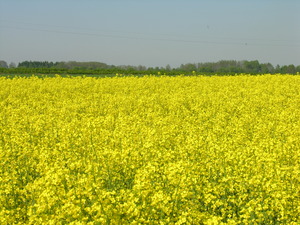
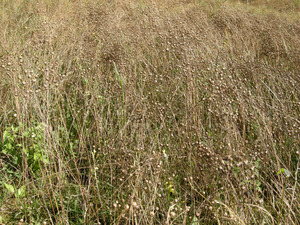
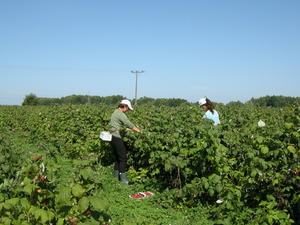
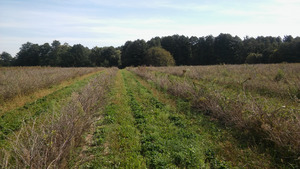
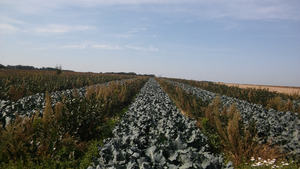
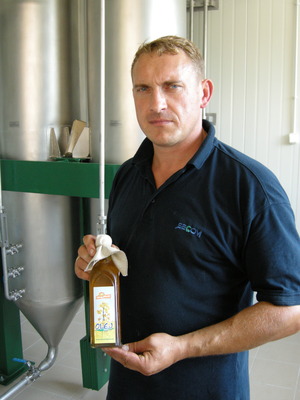
Problem encountered
Production of organic oils is an important activity on the farm. Usually the yields of rape, milk thistle and flax are low, therefore a larger agricultural area is needed to meet the demand, or it must be supplied by other organic farmers. In the region where the farm is located it is now very difficult to enlarge the agricultural area. At the same time, a drought has significantly influenced the crop yields. The farm occupies 25 hectares of agricultural land, but the fields are small, narrow, and scattered over several kilometres. In the last year there has also been a stagnation on the organic market, which makes it more difficult to sell some vegetables and fruits. The general concern for the diversity of crops on the farm is the lack of stable sale channels and low crop yields.
Solutions implemented
Due to the limited agricultural area and low crop yields, several actions were implemented. First, intercropping of fruits and vegetables was introduced. Moreover, oilseed crops have been additionally cultivated in leased fields and in other cooperating farms. Organic fertilisation was increased and irrigation for the most profitable crops was introduced. The farmer strongly influenced other organic producers to develop a local sales channel. As a result, a higher level of production was achieved, which allowed the farmer to enter the market at the national level.
Challenges encountered
The first challenge was to meet the high requirements of organic production. Tomasz Obszański is also responsible for the quality of products coming from his suppliers, and thus bears the risk of losing profit. However, this is necessary in order to achieve a higher level of production and transfer part of his production to partners.
A big challenge in the first years of the project was to attract other farmers to implement the diversification model developed in case study 10. Organic production in Poland occupies only 3-4% of the agricultural area, and the majority of this is devoted to grain production. Despite attractive prices, only a few organic farmers decided to start cultivating rapeseed and other oil crops.
The last big challenge is the competition with large organic producers that are able to offer lower prices mainly due to lower costs. In the context of this situation, the farmer tries to seek new sales channels.
Why was it successful?
In cooperation with the farmer, various improvements have been proposed. Within the framework of agrotechnical practices, it has been suggested to introduce winter cover crops such as winter rye and winter vetch to reduce water and nutrient losses and in this way to improve the soil fertility for vegetables planned in the following growing season. The introduction of oilseed hemp was also considered as an alternative to rape. As a market solution, it was proposed that other vegetables and fruits should be sold on the market as processed products. It was suggested to cooperate with larger organic producers and look for alternative sales channels, based on solutions of other diversification initiatives.
 tap and then scroll down to the Add to Home Screen command.
tap and then scroll down to the Add to Home Screen command.